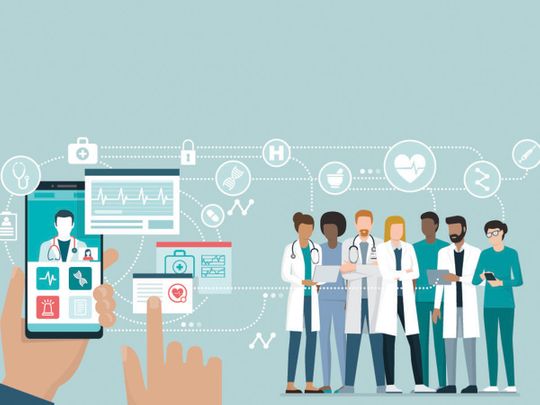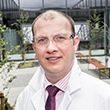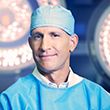
Imagine a baby born with one of 7,000 rare diseases – so-called because it affects one in about 1,500 infants. With a range of common symptoms that may indicate a number of different conditions, it could take a clinician months or years to correctly diagnose the illness. But time is one thing our baby doesn’t have: 30 per cent of children with rare diseases die before the age of five. Overall, some 350 million people worldwide are affected by different rare diseases – and as many as 80 per cent of these have a genetic component. The majority of these diseases begin in childhood, the non-profit advocacy organization Global Genes says, making early detection key to potentially life-saving treatment.
“Precision medicine has the ability to diagnose disease within a day, not a decade,” says PJ Moloney, Founder & CEO, P4ML, an Irish precision medicine company. The field focuses on identifying medical approaches for patients based on genetic, environmental, and lifestyle factors. “Every year around the world, 20 per cent of pregnancies end in miscarriage and 2.6 million babies are stillborn. A further 2.6 million babies die in their first month of life, mainly due to being born too soon or due to complications at birth. A huge proportion of these deaths could be prevented with high-quality care and clinical innovation – as could the majority of maternal deaths and stillbirths,” he told GN Focus via email.

Precision medicine has the ability to diagnose disease within a day, not a decade.
P4ML is part of the 2020 programme of the Dubai Future Accelerators (DFA), an initiative of the Dubai Future Foundation, which identifies and brings new developments in a number of futuristic fields to the UAE each year. Another participant in this year’s technology transfer cohort is the South Korean firm DC Medical. Its product, Everybaby, is an affordable handheld diagnostic device that predicts whether a mother is likely to go into pre-term labour soon. “The international market for such devices is billions of dollars,” says Dabriel Choi, Founder at DC Medical. The Dubai Health Authority is exploring the use of both technologies for use in the UAE. The partnerships showcase how technology is set to transform healthcare and its delivery in the UAE and the wider Middle East.
Innovative developments
A range of new developments, from artificial intelligence (AI) and 5G internet to 3D printing and biotechnology are changing our very notions of disease management in the region. Wearable devices and clinical sensors, for example, will collect and collate patient metrics across a number of data points, while algorithms can analyse this information for actionable insights to spotlight early medical intervention. Elsewhere, AI can speed up the research and development of drugs while improving medical imaging and diagnostics capabilities. Radical interoperability and open platforms will make healthcare information more accessible and encourage providers and insurers to share data with each other, improving the quality and efficiency of treatment while allowing patients to make better, more informed decisions. And should a disease process to the stage where an organ transplant is the only option, hospitals will be able to bio-print personalised cellular tissue on demand, and surgeons will be able to operate on patients from thousands of kilometres away.
All told, these developments will inflate the medical technology market across the MENA region to $11 billion by next year, forecasts from the Middle East Medical Devices and Diagnostics Trade Association show. Over the next five years, some $200 billion will be spent on healthcare infrastructure on the back of a growing but ageing population, according to data from the Arab Health trade show and real estate specialists Colliers International Healthcare Analysis.
Virtual consultations
By 2030, then, the hospital you walk into could be radically different from today’s clinics – if you need to visit a hospital at all. As in nearly every other field, internet connectivity is changing the delivery of healthcare. News broke last month of the UAE’s first virtual hospital, being developed by telecoms major du in association with the Ministry of Health. Appropriately timed in the wake of the SARS CoV-2 coronavirus outbreak, this sort of telemedicine facility would allow patients to consult with doctors over the internet in real-time, with immediate diagnosis and treatment options. Surgery could also take place remotely, provided the right robots were in place, internet connectivity was stable, and ethical considerations ironed out; as the Canadian surgeon Mehran Anvari has shown, doctors can operate from as far as 400km away.

The ability to collaborate effectively will be also a fundamental predictor of success in improving outcomes.
This market for this sort of connected care is estimated to be worth $9 billion across the Mena region in 2022. For an example of how it works in action, look to the doctors at Cleveland Clinic in Abu Dhabi, who are working to mitigate the effects of heart disease, the country’s biggest killer. The hospital’s remote heart monitoring system, first deployed in 2018, collects data from pacemakers and other implantable cardiac devices from anywhere in the UAE and alerts doctors when it detects serious heart rhythm disturbances. Such connected devices can easily link patients with medical experts anywhere in the world and allow medical professionals to quickly consult with each other.
“The ability to collaborate effectively will be also a fundamental predictor of success in improving outcomes,” Cleveland Clinic Abu Dhabi CEO Dr Rakesh Suri told GN Focus in a recent interview. “Patients benefit when multidisciplinary teams meet and consult with their colleagues through video-conferencing and collaborative technology. Such collaboration allows teams of physicians to discuss complex cases, adding another layer of expert evaluation when deciding on how to proceed with treatment,” Dr Suri said.
From genome sequencing to artificial intelligence and connected care, then, the region’s widescale embrace of technology could see GCC quickly gain market leadership in technology-driven healthcare. “The GCC is fast becoming the Silicon Valley for Healthcare,” Moloney says. “The ambition, expertise and scale now exist in cities such as Abu Dhabi, Dubai and Riyadh, and we will soon see the potential for future disruptors showcased across the region.” Whether it’s babies with rare diseases or middle-aged people with cardiovascular issues, everybody stands to benefit.













